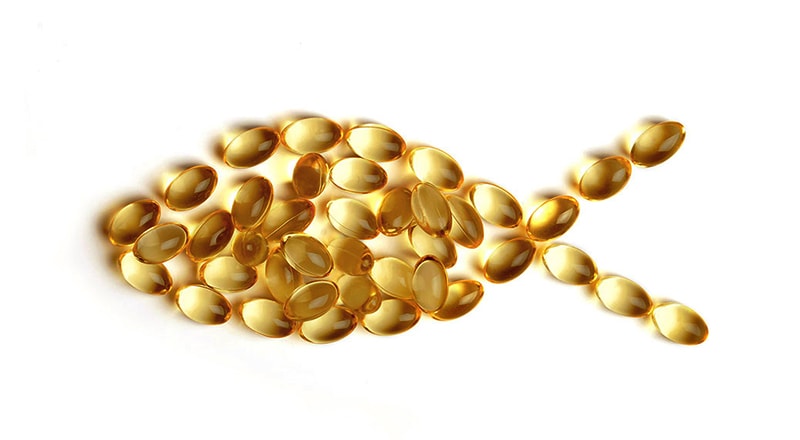Are Fish Oils Dangerous? Learn the facts

Do you need fish oil?
It is said: A lie repeated often enough becomes the truth.
In the field of clinical nutrition, I have grown to appreciate that “truths” can alter. Due to increased knowledge gained through research, what we believed was accurate several years ago has now been disproven or elaborated upon. In our field, you must stay on the cutting edge because we are constantly learning and discovering new things about the human body. It’s actually one of the things I love about what we do.
However, I’m not a fan of being lied to and I don’t like finding out a nutritional “truth” was based on poor research and laziness.
The ingestion of fish oil to improve heart health was based on research conducted in the 1970s by Danish researchers, Bang and Dyerberg, who apparently confirmed a very low incidence of heart attack amongst the Inuit Eskimos. It came to be known as the Eskimo paradox, because, of course, how could it be that a mainly meat-based diet virtually devoid of any healthy fruits and vegetables could be heart-protective?
Good question! The researchers attributed the heart “health” to the consumption of seal and whale blubber found to be rich in omega-3 fish oils. We all swallowed this “fish tale” and a billion-dollar industry was built on this data… that was completely untrue.
I know; shocking. It turns out there is plenty of research stating the actual truth. Apparently those researcher papers just didn’t rise above the noise adequately and they were drowned out by louder fiction.
But why did we believe something that, on the face of it, just didn’t make sense?
It has been suggested that we love to believe supposed good news that lends support to our bad habits. I concur.
What is the truth? Clinical research, results of autopsies, and the use of imaging has proven heart disease to be just as common amongst Eskimos as non-Eskimos. Their rate of fatal stroke however is twice as common, and their life expectancy is quite short. It is rare to find someone who appeared to be over the age of 60, and Eskimos live a full decade less than the average Dane, according to Dr. McDougall.
The health records used by the Danish researchers were flawed. It turns out the Inuit lived at such a distance from any hospital their illnesses frequently went undiagnosed and their actual causes of death often remained unknown. More recent studies reveal those sticking to a traditional Eskimo diet suffer from heart disease more often than the typical American eating our horrendous diet. Now that’s saying something!
As one doctor put it, if you have to adopt the traditional American diet in order to see an improvement in your own diet, that’s truly scraping the bottom of the unhealthy barrel.
Is it okay to take fish oil anyway? Maybe not, unless you eat zero fish – more on that a little later.
A nutrition expert from the University of Eastern Finland states fish oil increases the LDL (bad) cholesterol and leads to an increased risk of type 2 diabetes. That would mean fish oil increased, rather than decreased, our risk of heart disease and diabetes.
Why would fish oil increase our risk of diabetes? It may very well be due to the source of the fatty acids EPA and DHA, rather than the fatty acids themselves. Fish, these days, are living in polluted oceans. Toxins such as PCBs, pesticides, heavy metals and dioxins, can all place burdens on our health.
PCBs, specifically, are tied to increased stroke risk and triple the risk of hemorrhagic stroke. PCB exposure, for Americans, is primarily from fish consumption, although there is some exposure from meat as well. Salmon is particularly high.
Toxins alter the metabolism of the human body in ways that can lead to type 2 diabetes. Some studies reveal just one weekly serving of fish is enough to not only counteract any benefit of omega-3s, but it is factually increasing your risk of our two major killers, heart disease and diabetes.
I will admit to “falling for” the research citing omega 3s are good for heart health, but, in our defense, we have been sourcing fish oil for our patients that are assayed to be free of toxins for decades. During the past few years, we have moved away from fish altogether and are utilizing a plant-based, toxin-free source of EPA and DHA – algae. The algae in these products have not ever touched toxic seawater, but still provides healthy omega 3s.
Did you ever wonder why fish are high in omega 3s? They don’t manufacture it. They get it from eating algae. Now you can too!
Do we need to consume any omega-3s? Yes. It’s estimated we need a whopping ½ of 1% of our daily calories from the essential omega 3 called ALA. A tablespoon of chia seeds (see a fun pudding recipe here) or ground flax seeds (great granola recipe here) and you’re done. Our bodies can take the ALA and turn it into the needed EPA and DHA, but the big question is, does it? And does it do so in enough quantity?
A study showed women to be significantly better at converting ALA into EPA and DHA than their male counterparts. Women converted 21% to EPA and 9% to DHA, while men achieved a poor 8% to EPA and zero conversion to DHA! Zero? Is that correct? Per this study, it is. Some surmise women are inherently better because we continue the species. DHA is important for the brain development of babies. Therefore it would be important to have healthy levels during pregnancy and breastfeeding.
Nutrition studies and research have deemed that over and above the tablespoon or chia or flax seeds mentioned above, we should take an additional 250 mg of preformed EPA and DHA. This can be acquired from algae (product you can try here) as I mentioned earlier with no downside of eating toxic fish.
Why do we need additional omega 3 supplements if we don’t eat fish? Did you ever hear fish called “brain food”? It turns out that wasn’t off the mark.
Our brains are predominantly fat and omega 3 fatty acids are important to maintain brain health. The plant sources aren’t sufficient because the ability to make the active omega 3s from plant foods seems to decline with age; plus some Americans just don’t like fish.
Patients with dementia and pre-dementia have lower levels of EPA and DHA in their blood. Studies where individuals were followed over time reveal a decline in brainpower consistent with omega 3 levels. Those starting out with the highest levels have a slower rate of cognitive decline as compared to those starting with lower levels of omega 3s. This was evident on MRI scans of the brain. Brains normally shrink with age, sadly, but the shrinkage was exacerbated in those with the lowest EPA and DHA levels.
Can such brain shrinkage be slowed?
A nice study showed improved brain function in elderly adults through the use of omega 3s. After just 6 months of supplementation, there was less brain shrinkage and greater brain integrity in the omega 3 group as compared to the placebo group.
If you eat fish you’re probably getting sufficient quantities. The liability of that is the stress on your heart and increased diabetes risk due to toxic exposure, but your EPA and DHA levels are likely adequate. My recommendation is to eschew fish and its toxins and, in addition to eating the plant sources mentioned earlier, supplement with a minimum of 250 mg of preformed EPA and DHA from algae.
A study evaluating vegans with low omega 3 levels were able to normalize those levels with the use of an algae supplement within just 4 months.
Note: I used to hate taking fish oil because I would “burp” fish. Have you experienced that? What’s great about the algae supplement is no fishy burping. It’s healthier of course too! Here is the link. Most people should only need one per day, two at the maximum. Check with your doctor.
Are you shocked to find out this information? Don’t be discouraged, if you are. The truth always comes out and one thing I can tell you after well over two decades of practice, the basics of how the body works, the benefits associated with plant foods, the dangers associated with drugs and chemicals – those things never change. If something sounds too good to be true it usually is – eating a lot of animal fat and no fruits and vegetables to achieve heart “health” just didn’t make sense! The human body is truly an amazing machine. It works and heals as long as you treat it well. It doesn’t hold a grudge for prior misdoings, thank goodness! and is very willing to improve with the correct assistance.
Do you need help with your health?
We have the diagnostic and testing tools, the clinical experience, and a different medical approach to discovering the root cause of why you have the symptoms that are bothering you. As long as you are ready to make some dietary and lifestyle changes, we can help you. We will "hold your hand" through the changes, step by step, to make each step an easy one. We are located in Clearwater, FL, at 1000 S Ft Harrison, at the corner of Ft. Harrison Ave. and Magnolia St. There is plenty of parking space directly accessible from Ft Harrison. If it is not convenient for you to come to Root Cause Medical Clinic, we offer telehealth/telemedicine consultations to residents of certain states. Call us for details.
Contact us for a Consultation – Call 727-335-0400

Dr. Vikki Petersen DC. CCN
Founder of Root Cause Medical Clinic
Certified Functional Medicine Practitioner
Dr Vikki Petersen is a public speaker, author of two books, several eBooks and creates cutting edge content for her YouTube community. Dr Vikki is committed to bringing Root Cause Medicine and its unique approach to restoring health naturally to the world.
Ask a Doctor
Have a health concern you'd like to speak with a doctor about? Or just want clarity on a subject? Ask Us!
Featured Articles
Popular Stories
References:
1.B Sarter, K S Kelsey, T A Schwartz, W S Harris. Blood docosahexaenoic acid and eicosapentaenoic acid in vegans: Associations with age and gender and effects of an algal-derived omega-3 fatty acid supplement. Clin Nutr. 2015 Apr;34(2):212-8.
2. Burdge GC, Jones AE, Wootton SA. Eicosapentaenoic and docosapentaenoic acids are the principal products of alpha-linolenic acid metabolism in young men. British Journal of Nutrition. 2002 Oct;88(4):355-63.


